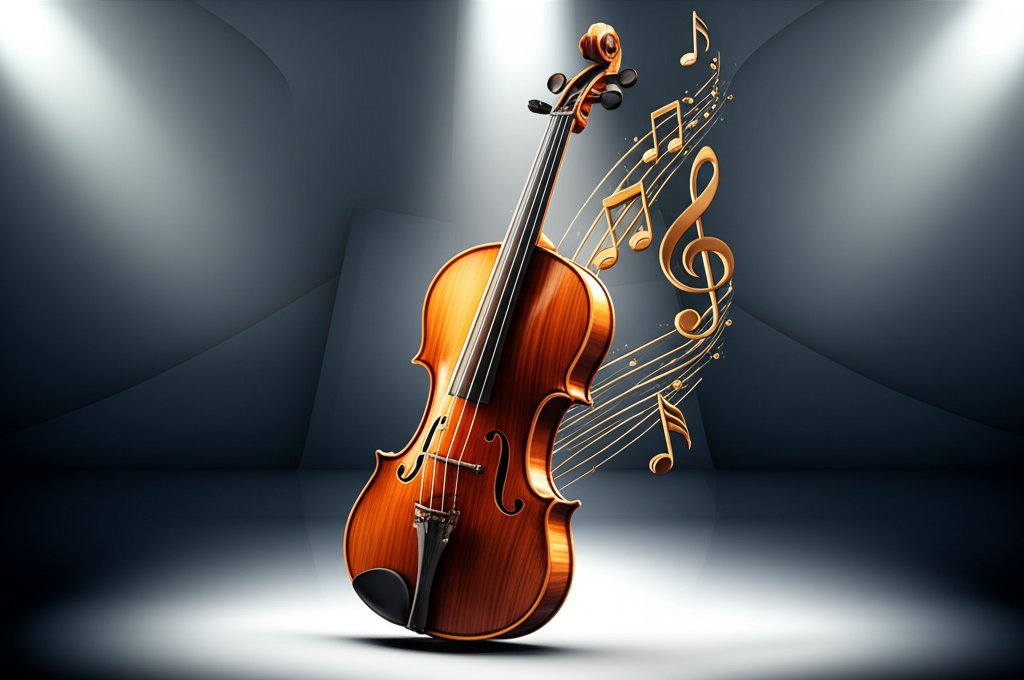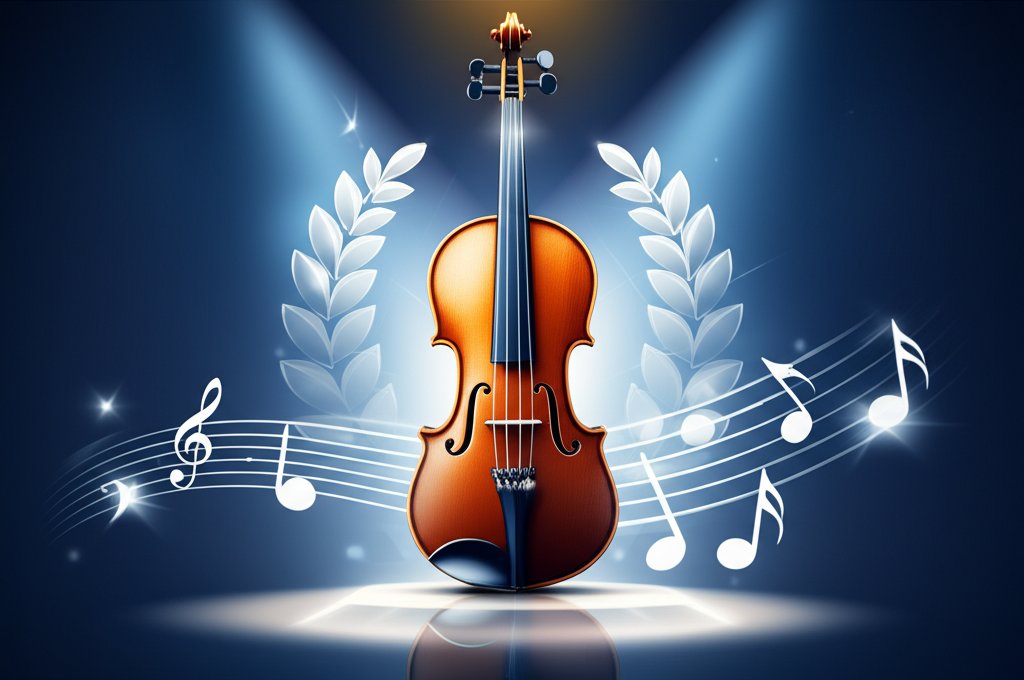The air in the concert hall is electric, so thick with anticipation you can almost touch it. On stage, a young musician stands alone under the glare of a single spotlight, violin tucked under their chin. Four hundred years of musical history and thousands of hours of solitary practice have all led to this moment. In the next fifteen minutes, they will either soar or stumble. This is the crucible of a world-class violin competition—a place where careers are forged, and the next generation of classical legends is born.
For outsiders, these high-stakes events can seem like an esoteric blend of the Olympics and a final exam. But for the artists themselves, and for the world of classical music, they are a vital, nerve-wracking, and utterly essential rite of passage. They are the engine that powers the discovery of new talent, pushing the boundaries of what’s possible on four strings.
At a Glance: The World of Violin Competitions
New to the competitive circuit? Here’s the essential breakdown of what you need to know.
- Career Launchpads: Competitions are far more than a talent show. Winning a major event can instantly secure an artist management, a recording contract, a series of international concert bookings, and a six-figure cash prize.
- A Spectrum of Arenas: The landscape includes everything from venerable, in-person institutions like the Queen Elisabeth and Tchaikovsky competitions to a growing number of accessible and innovative online contests.
- An Artistic Marathon: Competitors navigate multiple rounds, performing a demanding and diverse repertoire that often includes Bach, Paganini, a major concerto, a chamber music piece, and a contemporary work.
- The Ultimate Test: Success requires more than just flawless technique. Jurors look for artistic maturity, a unique musical voice, compelling stage presence, and the mental resilience to perform under immense pressure.
- Strategic Preparation is Everything: Choosing the right competition for your age, skill level, and artistic goals is as important as mastering your repertoire.
More Than a Trophy: Why Violin Competitions Still Matter
In an age of social media stardom and viral videos, one might wonder if the formal, high-pressure world of classical competitions is still relevant. The answer, from virtually every corner of the industry, is a resounding “yes.” They remain the single most effective platform for a young artist to transition from prodigy to professional.
A single victory can change a life. Take the 58th Premio Paganini competition in Italy, one of the most prestigious violin contests in the world. When 17-year-old Aozhe Zhang of China won the first prize, he didn’t just walk away with €30,000. He was also handed a string of concert engagements with top orchestras and the opportunity to record a debut album—the kind of career-igniting package that can take decades to build otherwise.
Beyond the grand prize, these events serve several crucial functions:
- A Benchmark of Excellence: They provide an objective standard, allowing young artists to measure their skills against the best of their peers from around the globe. The intense preparation required forces a level of refinement and mastery that is difficult to achieve in isolation.
- Unparalleled Networking: Where else can a young violinist perform for a jury of world-class soloists, influential conservatory professors, and powerful conductors? Jurors like the legendary Uto Ughi, who chaired the Paganini panel, are not just judges; they are gatekeepers and mentors who can open doors for promising talent, even for those who don’t win first prize.
- Driving Artistic Growth: The repertoire demands are immense. A competitor must prepare several hours of the most difficult music ever written, from the mathematical purity of a Bach fugue to the fiery virtuosity of a Paganini Caprice and the emotional depth of a Brahms concerto. This crucible forges a more complete and resilient artist.
The Anatomy of a Violin Competition: What to Expect
While every competition has its own unique character and rules, most follow a familiar and demanding structure. Understanding this framework is the first step for any aspiring competitor.
The Application: Your First Performance
Long before you step on stage, your first test is the application packet. This is your professional calling card, and it needs to be flawless. It typically includes:
- Pre-screening Recordings: Most competitions require high-quality video recordings of specific pieces. This is the first cull, where hundreds of applicants are narrowed down to a few dozen who will be invited to compete live or in subsequent online rounds.
- Repertoire List: You must submit the full list of works you intend to perform for every round. This list must be chosen strategically to showcase your technical prowess, musical intelligence, and artistic range.
- Curriculum Vitae (CV): A detailed summary of your musical education, teachers, previous awards, and performance experience.
- Letters of Recommendation: Endorsements from respected teachers or mentors who can vouch for your talent and work ethic.
The Rounds: A Marathon of Musicality
Competitions are not a single-performance sprint; they are a multi-stage marathon designed to test an artist’s stamina and versatility.
- Preliminary Round: This might be a live performance of a solo Bach work and a Paganini Caprice, or it could be judged entirely from the initial video submission.
- Semi-Final Round: The field narrows. Competitors typically perform a full recital program, often including a classical sonata (like one by Mozart or Beethoven), a major romantic or 20th-century sonata, and several virtuoso showpieces. Many competitions, like the Premio Paganini, also include a chamber music component—a test of a violinist’s ability to collaborate and listen.
- Final Round: The climax. The handful of remaining finalists perform a major concerto with a full symphony orchestra. This is the ultimate test of projection, stamina, and the ability to command a stage while collaborating with over 80 other musicians.
The Jury: Who Decides Your Fate?
The jury is typically a panel of between seven and fifteen distinguished figures from the classical music world. They are often former competition laureates themselves, celebrated soloists, first-chair players from major orchestras, and esteemed professors at top conservatories like Juilliard, Curtis, or the Kronberg Academy. They score each performance on a range of criteria:
- Technical Command: Intonation, rhythm, tone quality, and accuracy.
- Musical Interpretation: Phrasing, stylistic understanding, and emotional depth.
- Artistic Individuality: Does the performer have a unique and compelling musical voice?
- Stage Presence: The ability to communicate with and captivate an audience.
A Tale of Two Stages: Navigating In-Person vs. Online Competitions

The digital revolution has profoundly changed the competition landscape. While the grand, traditional live events still hold immense prestige, online competitions have emerged as a powerful and accessible alternative for performers worldwide.
The Traditional Gauntlet: The Prestige of In-Person Events
Events like the Naumburg International Violin Competition in New York (with its $25,000 first prize) or the quadrennial competition in Indianapolis are iconic institutions. They are the Ivy League of the music world.
- Pros: The history and prestige are unmatched. The opportunity to perform in legendary concert halls, the thrill of a live audience, and the invaluable face-to-face networking with jurors and artistic directors are advantages that cannot be replicated online.
- Cons: The cost is a significant barrier. Applicants must cover expensive application fees, international travel, accommodation, and accompanist fees, which can easily run into thousands of dollars. The pressure of live, do-or-die performance is also immense.
The Digital Arena: The Rise of Online Competitions
Organizations like the Chicago Violin Competition (CVC) have pioneered a new model. The CVC is an international, online-only competition for violinists aged 7-28, offering a unique virtual pathway for young artists to gain experience and be heard by an international jury without leaving their home.
- Pros: The primary advantage is accessibility. They eliminate the barriers of cost and travel, opening the door to talented musicians from every corner of the globe. The ability to submit a meticulously prepared recording can also reduce the anxiety associated with a single, high-stakes live performance.
- Cons: While growing in stature, they generally don’t carry the same career-launching weight as a major in-person victory. The crucial elements of live networking and demonstrating stage presence are also absent.
The modern musician must navigate both worlds. Many use online competitions to build their CVs, test new repertoire, and gain experience before tackling the major live circuits.
Choosing Your Battle: How to Find the Right Violin Competition
With hundreds of competitions out there, selecting the right one is a critical strategic decision. Simply aiming for the most famous one isn’t always the best approach.
Assess Your Level and Age
Be realistic about where you are in your development. Competitions are strictly segmented by age. Look for events with dedicated junior divisions, like the Leonid Kogan International Competition for Young Violinists in Brussels, or those with specific age cutoffs, like the “Premio Franco Gulli” for violinists born after January 1, 1996. The Chicago Violin Competition offers both Young Artist and Senior Artist divisions, catering to a wide range of performers.
Align with Your Repertoire Strengths
Study the required repertoire lists carefully. If your greatest strength is in Bach’s solo works, find a competition that weights that heavily. If you have a passion for new music, look for one like the Premio Paganini, which offers a special prize for the best performance of a contemporary work. Don’t waste months preparing music you don’t connect with.
Consider the Prize Package
What do you need most at this stage of your career? If it’s financial support, target competitions with large cash prizes. If it’s performance experience, prioritize those that offer concert engagements as the top prize. Some offer invaluable instrument loans of rare Stradivarius or Guarneri violins.
Research the Jury and Past Winners
A competition is only as good as its jury. Look at the panel—are these artists you admire? Winning their respect is a prize in itself. Also, look at the careers of past laureates. Did winning the competition actually lead to a sustainable career? A great place to start your research is to look at a comprehensive calendar of an Upcoming Violin Competition 2025 to see what deadlines are approaching and who is involved.
To illustrate the sheer variety, here is a small sample of the competitions available:
| Competition Name | Location | Format | Noteworthy Feature |
|---|---|---|---|
| Premio Paganini | Genoa, Italy | In-Person | One of the world’s most prestigious; huge career prize. |
| Naumburg Violin Competition | New York, USA | In-Person | Highly respected with a significant cash prize and NY debut. |
| Chicago Violin Competition | Chicago, USA | Online | Accessible virtual format with Senior & Junior divisions. |
| Ysaye Int’l Music Comp. | Belgium / Korea | Hybrid | Global reach, open to musicians up to age 33. |
| Leonid Kogan Competition | Brussels, Belgium | In-Person | Focused specifically on nurturing young violinists. |
The Competitor’s Playbook: A Blueprint for Preparation
Success in a violin competition is a product of years of methodical, intelligent work. Talent alone is not enough.
Master Your Repertoire, Don’t Just Learn It
By the time you submit your application, the notes should be completely under your fingers. The real work is in the interpretation. This means going beyond the page:
- Historical Context: Understand the composer’s life, the era they lived in, and the performance practices of the time. A Beethoven sonata should sound and feel different from a Prokofiev sonata.
- Structural Analysis: Know the harmonic and formal structure of every piece. This knowledge provides the architectural foundation for a compelling interpretation.
- Narrative Arc: What story are you telling with the music? Every phrase should have intention and direction.
Build Your Mental Armor
The psychological pressure of a competition can be crushing. Mental preparation is as important as practice.
- Develop a Pre-Performance Routine: Rituals can help calm nerves and signal to your brain that it’s time to focus.
- Practice Visualization: Mentally rehearse your entire performance, imagining not just the notes but the feeling of confidence and control on stage.
- Manage Adrenaline: Learn breathing exercises to control the physical symptoms of stage fright (shaky hands, rapid heartbeat). Turn that nervous energy into performance-enhancing focus.
Practice Performing
You can’t simulate the pressure of a competition in your practice room. Create opportunities to perform your full program for others—in studio classes, for friends and family, or at local community centers. Record these mock performances and analyze them critically with your teacher. The goal is to make the act of performing under pressure feel as normal as possible.
Frequently Asked Questions About Violin Competitions
How much does it cost to enter a violin competition?
Costs vary dramatically. Application fees can range from free (for some online contests like the Fenix Award International Music Competition) to several hundred dollars for major events. The biggest expenses are for in-person competitions: international flights, hotels for one to two weeks, and fees for a professional accompanist, which can total anywhere from $3,000 to $10,000 or more.
Is winning everything?
Absolutely not. While winning is the goal, many other positive outcomes are possible. Advancing to the semi-finals or finals of a major competition is a huge professional credential. A memorable performance can catch the ear of a juror, manager, or conductor, leading to future opportunities regardless of the final ranking. The preparation process itself leaves every participant a stronger, more polished musician.
How are online competitions judged fairly?
Reputable online competitions use the same caliber of jurors as live events. They establish strict rules for video submissions (e.g., single, unedited takes) to ensure authenticity. While they can’t judge for stage presence in the same way, they can focus intently on the technical and musical details of the performance. Jurors are highly experienced in evaluating performances through recordings.
What happens after you win a major competition?
The winner is immediately thrust into the spotlight. The days and weeks following a win are often a whirlwind of press interviews, photo shoots, and meetings with concert presenters. The management and concert engagements that come with the prize start almost immediately. The challenge then becomes living up to the immense expectations, managing a demanding travel schedule, and continuing to grow as an artist under public scrutiny.
Beyond the Final Round: The True Prize of Competing
The moment the winners are announced is the one everyone remembers. But the true value of a violin competition isn’t confined to that single moment on stage. It’s in the journey.
It’s in the discipline forged over countless hours in the practice room. It’s in the resilience learned from confronting your own limitations and pushing past them. It’s in the deep, unshakable bond you form with the music of Bach, Beethoven, and Brahms—a bond that will nourish you for the rest of your life.
Whether a young artist wins the grand prize or goes home after the first round, they leave the experience a different person. They are a more refined musician, a more disciplined practitioner, and a more resilient human being. They have tested themselves against the highest possible standard and, in doing so, have discovered the depths of their own potential. And that is a prize that lasts a lifetime.
- Discover Affordable Singing Lessons Near Me to Unlock Your Potential - February 24, 2026
- Affordable Vocal Lessons Bring Professional Singing Guidance Within Reach - February 23, 2026
- Local Vocal Lessons Offer Expert Guidance for Every Singer - February 22, 2026










